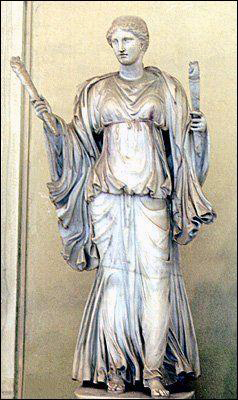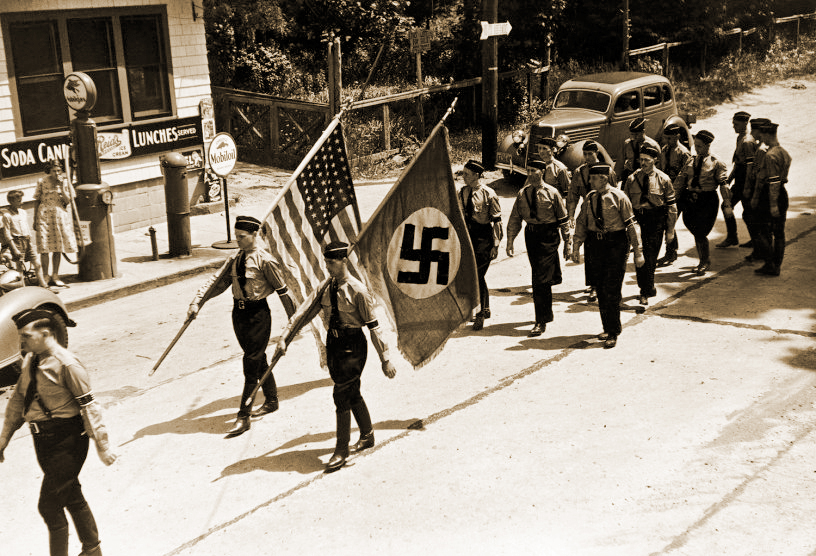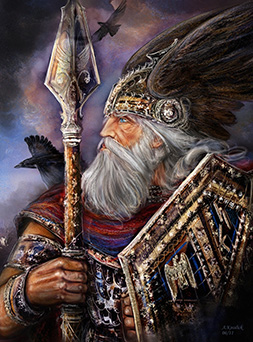by Matt Koehl
VI. Worldview of a New Age

Today we are witness to the death throes of a civilization. An entire order is collapsing. The Old cannot be restored. It is doomed.
The confusion and uncertainty we now see is but a prelude to the utter chaos and agony which awaits. When the bright star of civilization implodes, it creates a spiritual black hole, one which acts in the same awesome manner as its material counterpart. All spiritual reality is impacted into nothingness by anti-spirit, as it were. No purpose, no meaning, no values, no standards, no principles, no roots, no direction, no ideals, no truth, no honor, no beauty, no excellence, no order, no gods—nothing—remains. Only that which is able to distance itself from the old world and remove itself from its terrible gravitational pull can escape the all-consuming vortex of the collapse.
In this latter category will be found all those now spiritually alienated, who somehow manage to find their way to a new world. Today there exists a brooding sense of despair—a despair reflecting more than a mere loss of faith in some governmental regime or social system, but touching every aspect of life and existence. Men cry out for something to believe in, for something to guide and inform their lives. Perceptive minds are searching for purpose and direction, for a new focus of faith to replace that which has been hopelessly and irretrievably lost.
But where is such an idea, such a faith?
As has been noted, Aryan man has suffered for over a thousand years from a spiritual tension caused by the intrusion of alien ideology into his natural thought-world—a process which has distorted the culture of the West from the very beginning, and prevented the fulfillment of a higher mission. Not only was an incredible cosmology foisted upon the reluctant Aryan by the new creed, but he was forced to accept a statement of teleological purpose which amounted to a declaration of war against the natural order and its eternal laws.
God was divorced from his creation; Nature itself became suspect; the spirit was set at enmity with the flesh; man was declared inherently and hopelessly sinful; God became an external object—a remote, arbitrary, despotic figure—whom man should fear and before whom he should cringe and cower, God was also seen as kind and benevolent; accordingly, he was said to have agreed not to torment and torture man in perpetuity, as he had planned, if man in turn would consent to ritual expiation through one of his three parts. By implication, responsible, upright behavior was denigrated in favor of forgiveness through divine grace.
The preoccupation of religion in the West for over a millennium with the salvation of the individual “soul,” without regard for any larger racial considerations, has had the most disastrous consequences. Not only has it encouraged the grossest form of spiritual pettiness and selfishness, but it has had an even more harmful effect.
By assigning cardinal importance to individual salvation, it thereby downgraded the well-being of one’s own kind—of one’s folk and race—to something of lesser significance. The community of believers—red and yellow, black and white—was more precious in the sight of the Church fathers than the true community of flesh and blood, love for which was denounced as a species of “idolatry.” Whereupon the spiritual marrow of Aryan man was left to marinate in a moral concoction of meekness, mildness, resist-not-evil and love-thine-enemy.
Finally, coupled with all of the foregoing measures for moral disarmament, there was added a Judeolatrous component: Those of the House of Israel were conveniently exempted from all of the above, on the grounds that as Chosen Ones they should not be disturbed by such unnecessary considerations. The modem condition presents itself as the end result of this extraordinary doctrine.
* * *
The worldview of the future will differ radically from the Judeo-Christian outlook. It will proceed from a totally different perception of the human condition and its purpose.
It will be based, in the first instance, upon a profound respect and reverence for Nature, which it conceives as a timeless order without beginning or end but undergoing constant change and cyclic renewal , and which in its ultimate configuration is consubstantial with the divine, which it treats as subject rather than object.
It regards man as part of Nature, and proposes to restore the natural laws to their rightful place in human affairs—thus reforging the sacred link between man and Nature, a link which was shattered by Semitic ideology.
At the same time, it declares that for the conscious Aryan there can be no separation from the divine; that his god is not in some other world, but resides within the precincts of his own heart; and that a proper religious attitude is one of veneration, rather than one of fear.
Thus does it lift the burden of original sin and guilt from his shoulders and end his abasement before the Almighty, proclaiming his glorious nobility instead. It restores the essential wholeness of man, for in its view there can be no cleft between body and soul. It represents, finally, an affirmation—rather than a negation—of life, and teaches joyful heroism, defiant courage and manly resolve in the face of inexorable destiny, even when it involves gloom and despair, adversity and death.
Thus does the new Idea—by returning to traditional values of Aryan religiosity—free Aryan man from that inner tension which has characterized spiritual life in the West for the past millennium, and bring him into harmony with the laws of Nature and his own being. In a word, the outlook of the future reinstates Aryan man to a sound, natural condition, once again allowing unhindered expression for his native spirituality, as well as freeing him for the accomplishment of a great mission.
In so doing, it recalls the faith of our ancient forefathers, who lived in communion and rapport with Nature and enjoyed a fully developed religious life, which established the moral and ethical standards of their society and set the spiritual tone of their destiny.
Most importantly, by going back to the primal source of life itself, the new Idea is able to re-establish the primacy of race as the sacred premise for all higher existence on this earth. By thus raising the concept of race to an inviolable religious principle—indeed, to a moral imperative—it is able to speak to the paramount issue of modem time, the supreme biological/environmental issue, namely, the survival of Aryan man as the most advanced form of life on this planet.
Hence, not the salvation of a mere individual, but rather the salvation of an entire race is its vital concern. By contrast, any system of contemporary philosophical or religious thought which fails to address this fundamental question in an explicitly positive manner is irrelevant, meaningless and useless—if not downright harmful—to the cause of our continued existence.
* * *
And here it must be noted that the threat to our racial survival begins with spiritual causes; consequently, it can only be overcome by a solution which is spiritual in character. It is not from a lack of political alternatives or intellectual strategies that we suffer, but rather a more fundamental lack of will, courage, determination, dedication, commitment, integrity and overall morale—not to mention a lack of basic understanding and insight and a sense of true common identity. Whatever external dangers pose themselves derive, in the final analysis, from this internal problem.
Therefore, the question of racial survival must be seen as involving not only political and propagandistic activity, but must in the first place encompass a moral and spiritual mobilization. Without such a moral muster, all other efforts—however noble and valiant—must necessarily prove futile. The effects of decades and centuries of cultural decadence are simply too advanced and widespread to be overcome through political appeal alone.
The proper function of politics, of course, is to take people—in the mass—as they are and utilize them for a larger purpose. The spiritual condition of the Western masses is such, however, as to preclude any useful potential for revolutionary political activity at this time. Consequently, the first task of the contemporary Movement must be to establish a firm spiritual/moral base—a standard of absolute moral fixity—capable of attracting those alienated young idealists of our race who are searching for answers in a confused and despairing world, one which will influence their lives and transform them into dedicated partisans of the holiest of causes.
It is just such a strong spiritual foundation which must underlie any effective political action in the future.
There is an accompanying consideration. It must be recognized that the condition which prevails evolved over a long period of time and cannot be eliminated by instantaneous panacea, but only through a process of protracted struggle involving decades and generations. The integrity of such a struggle, however, can only be sustained by spiritual—i.e., religious—conviction and commitment, with the Movement often depending solely on its moral resources for continuity and survival. Therefore, the development of those resources as a critical necessity must assume the highest priority over every other consideration.
* * *
If the new Idea represented merely an instauration of traditional Aryan spiritual values and the natural outlook of pre-Christian times, along with an appeal for racial preservation, it certainly would possess relevance, meaning and utility; yet it would remain incomplete, and would not hold its dynamic, historic quality. For ultimately, every great historical idea embodies a special mission as well as a call for a new type of man.
What is unique about the Idea of the future is that it proposes to relieve the human condition by transcending it. It proclaims a higher destiny for Aryan man, and summons him toward a full realization of his potential for physical, spiritual and moral elevation—indeed, toward godhood—an undertaking so tragically stymied and stunted till now by the warped, deforming doctrines of an alien creed.
Nevertheless, it is precisely the possibility for such upward evolution toward a godlike race in the Nietzschean sense which assigns to the new Idea its higher purpose and meaning and gives to it its extraordinary, revolutionary character.
If we examine all of the ideological and spiritual trends of the past one hundred years, as well as those of the present time, it becomes immediately apparent that there is but one Idea which can conceivably qualify to serve as the formative principle of a post-Western, post-Christian world.
The coming dispensation will not involve so-called alternatives which are merely secularized outgrowths of the same underlying idea which is itself the cause of our present condition.
And here it must be emphasized that in the revolutionary convulsions which are coming, the neo-Semitic ideology of Karl Marx will have no more lasting significance than that of a cultural emetic. Whatever momentary power and success it enjoys is all ephemeral within a larger historical context—just as is that of all the gurus, fakirs and exotic, new cults from out of the East in these latter days of the twilight civilization.
In the contemporary world, an idea or conception may be viewed as either reactionary—and therefore transitory—or as revolutionary and enduring. Everything which tends to perpetuate the Old Order is reactionary. Everything which continues to work within the framework of the past is reactionary. Everything which tends to foster decadence is reactionary. All falsehood, all hypocrisy and opportunism are reactionary. As such, they are transitory and will not last. Only that which embraces hard reality and difficult truth will form part of something new and wonderful. Only it can truly be called revolutionary, for it will endure. It alone will furnish the spiritual foundation—the radiant nucleus—of a new age.
Today there is but one Idea which may be regarded as the regenerating seed of a revolutionary New Order; but one Idea which can serve as a spiritual standard for post-Western man; but one Idea which holds the key to the future. It is the magnificent and mighty Idea of Adolf Hitler.






